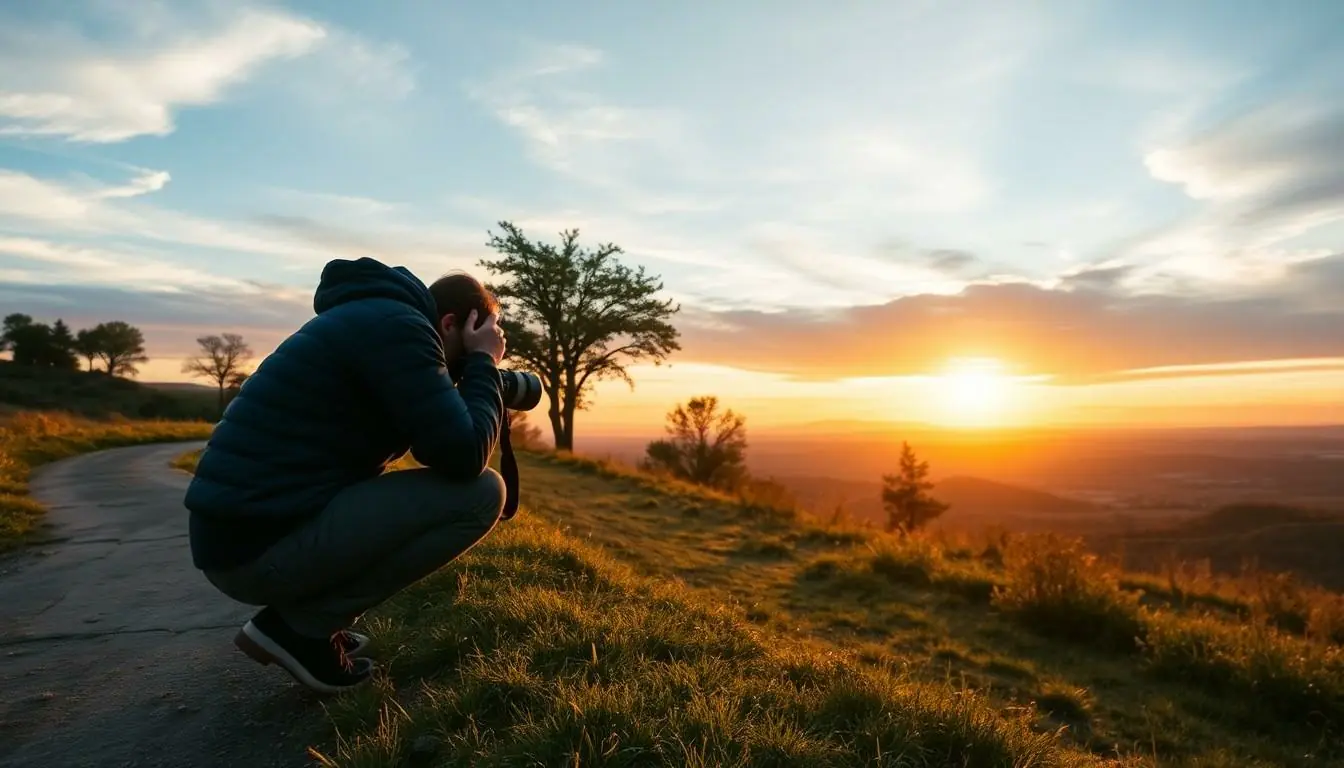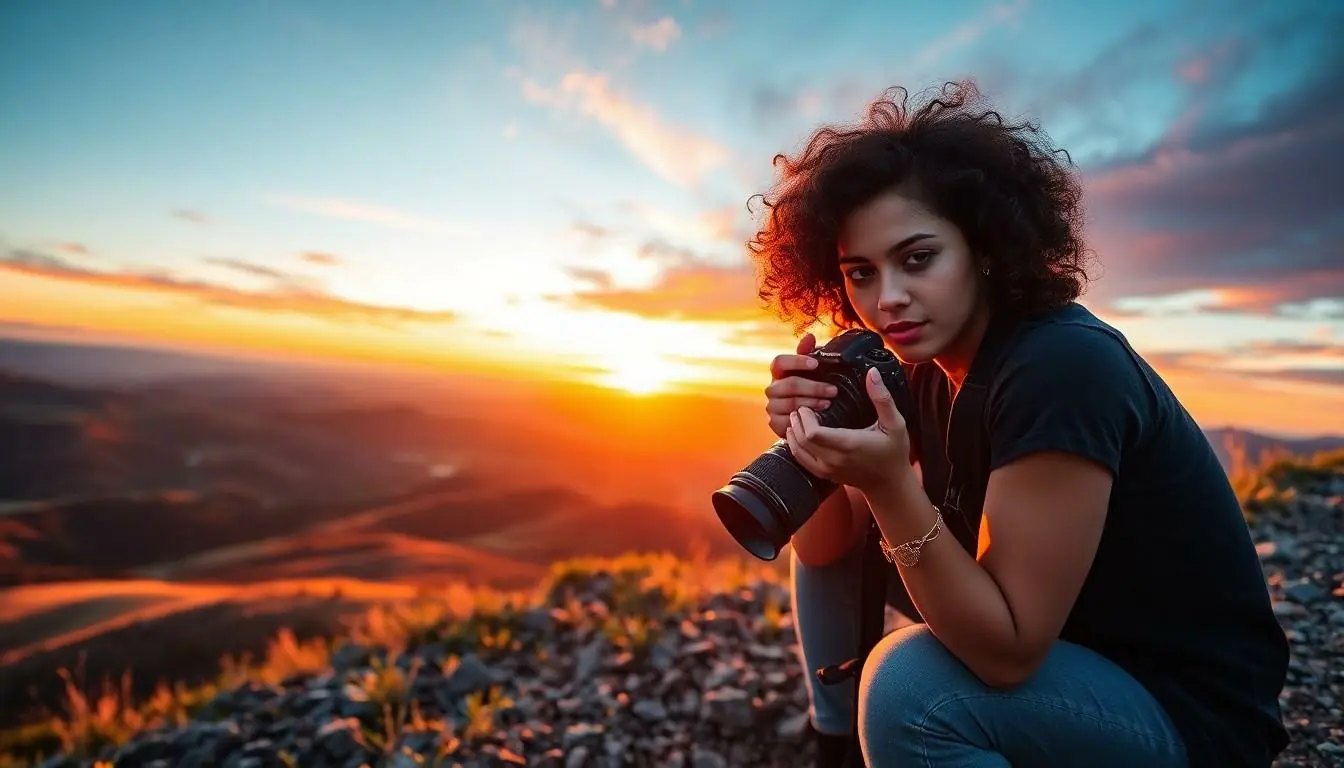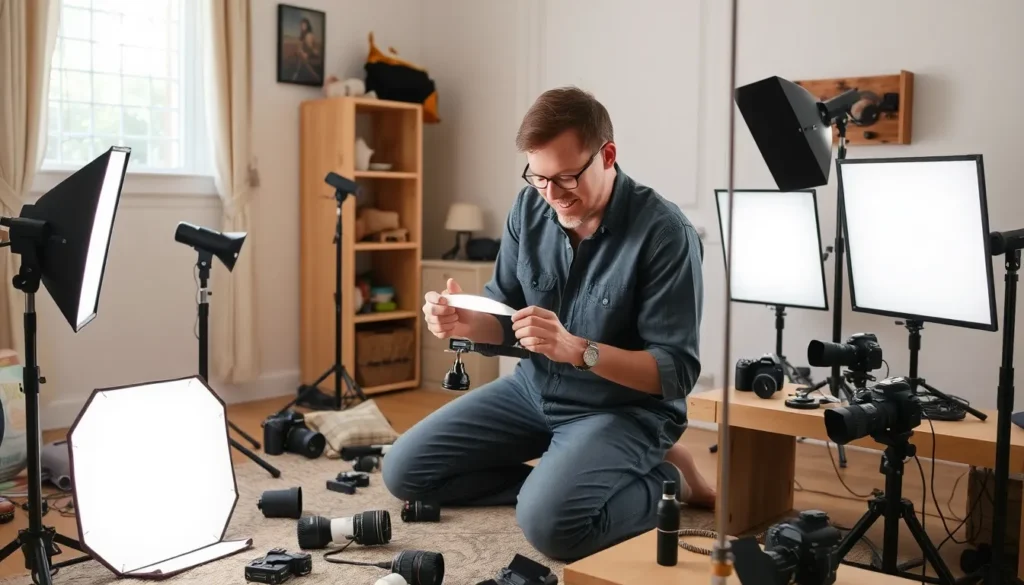In a world where everyone’s snapping selfies and sharing cat videos, standing out in photography can feel like trying to find a needle in a haystack. Next level photography isn’t just about having the fanciest gear; it’s about mastering the art of capturing moments that make viewers stop scrolling and start staring. Whether it’s the perfect golden hour light or a candid shot that tells a story, the magic lies in the details.
Imagine transforming ordinary scenes into extraordinary art that leaves people wondering how you did it. With a sprinkle of creativity and a dash of technique, anyone can elevate their photography game. So grab your camera and prepare to dive into the world of next level photography—where every click can turn into a masterpiece and every photo can spark joy (or at least a few likes).
Table of Contents
ToggleWhat Is Next Level Photography?
Next level photography elevates the craft beyond basic skills and standard techniques. It emphasizes the importance of storytelling through imagery, engaging the viewer on a deeper level. Mastering composition, lighting, and camera settings enhances the overall quality of images.
Creativity plays a crucial role in this advanced approach. Photographers are encouraged to think outside the box, aiming for originality in their work. Finding unique angles and perspectives sets compelling images apart from the rest.
Technical proficiency also contributes significantly. Familiarity with advanced editing software allows photographers to refine their images further. Experimenting with various techniques such as long exposure or multiple exposures generates intriguing results.
Understanding the subject matter strengthens the emotional impact of photographs. Whether it’s capturing the essence of a landscape or the candid expression of a person, connecting with the subject creates resonant images.
Next level photography demands constant learning and adaptation. Keeping up with industry trends and new technology helps photographers maintain relevance. Networking with other professionals and engaging in workshops fosters growth and innovation in one’s craft.
Mastering next level photography transforms ordinary scenes into extraordinary art. Photographers who embrace these elements consistently produce impactful work that stands out in a saturated market.
Key Techniques for Next Level Photography

Next level photography relies on specific techniques that enhance overall image quality. Understanding these fundamental aspects can help any photographer elevate their craft.
Mastering Composition
Mastering composition influences how images convey messages and emotions. Utilizing the rule of thirds creates balance and draws attention to essential elements. Leading lines guide viewers’ eyes through the frame, enhancing engagement. Experimenting with different angles provides unique perspectives that can surprise the viewer. Additionally, framing subjects with natural elements adds depth to the photograph. Each element in the composition should serve a purpose to create a more powerful image, inviting viewers to connect with the story presented.
Understanding Lighting
Understanding lighting forms the backbone of successful photography. Natural light offers different qualities depending on the time of day, with golden hour providing soft, pleasing tones. Artificial light can capture specific moods, making portraits more dramatic or vibrant. Experimenting with shadows can add depth or create intrigue in an image. Using reflectors helps bounce light onto subjects, enhancing details and reducing harsh shadows. Mastering these lighting techniques ensures that photographers can adapt to various situations, enhancing their visual storytelling.
Equipment That Elevates Your Photography
Investing in quality equipment significantly enhances photographic capabilities. Understanding Cameras and Lenses becomes crucial for achieving next level photography.
Cameras and Lenses
A camera’s sensor size influences image quality, making full-frame cameras preferred by professionals. Lenses also play a pivotal role; prime lenses provide sharper images compared to zoom lenses. Versatile focal lengths allow for creative framing and composition. Selecting the right aperture impacts depth of field, enabling stunning portraits or sweeping landscapes. For instance, a 50mm f/1.8 lens excels in low-light conditions and produces beautiful bokeh. Advanced photographers often explore specialty lenses like tilt-shift for unique perspectives. Each lens choice significantly shapes the final image.
Accessories and Tools
Essential accessories can elevate photographic experiences. A sturdy tripod stabilizes images, particularly during long exposures or low light scenarios. Filters add effects, with polarizers reducing glare and enhancing colors in landscapes. Moreover, external flash units improve lighting, especially for portrait sessions. Battery grips extend shooting time, ideal for events or long outings. Additionally, lens cleaning kits ensure equipment remains in pristine condition. These tools empower photographers to capture stunning visuals consistently.
Post-Processing Tips for Next Level Photography
Post-processing plays a vital role in achieving next-level photography. This phase allows photographers to refine their images and unleash their creative potential.
Software Recommendations
Adobe Lightroom stands out as a preferred choice for photographers, offering intuitive tools for adjusting exposure, contrast, and color balance. Capture One provides exceptional color grading options, allowing precise control over each image. For those seeking a free alternative, GIMP delivers robust editing capabilities comparable to paid software. Photoshop remains essential for complex edits, such as retouching and compositing multiple images. Experimenting with these programs allows photographers to find the best fit for their workflow.
Editing Techniques
Adjusting highlights and shadows can vastly improve the balance of a photograph. Adding contrast enhances depth and draws attention to focal points. Color grading techniques allow photographers to create specific moods or atmospheres, greatly impacting viewer perception. Cropping strategically can refine the composition, emphasizing the subject and eliminating distractions. Using sharpening and noise reduction tools preserves detail in both highlights and shadows. Each technique contributes to transforming an ordinary image into a captivating visual story.
Next level photography isn’t just about technical skills or fancy gear. It’s about the passion and creativity behind each shot. By mastering composition and lighting and embracing storytelling, photographers can elevate their work to new heights.
Constant learning and adapting to new techniques ensure that they remain competitive in a crowded field. With the right tools and a commitment to refining their craft through post-processing, they can create images that resonate deeply with viewers.
Ultimately, the journey of next level photography is a rewarding one that transforms ordinary moments into extraordinary visual narratives. Embracing this approach allows photographers to leave a lasting impact and truly stand out in the world of photography.



